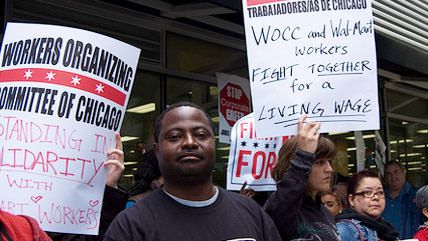Let's Make 2014 the Year of Freedom for Low-Wage Workers
Our regulations price low-income people out of greater job potential. That is a crime.

The federal budget deficit was big in 2013, but not as big as the freedom deficit. We should all resolve to make 2014 the year that we secure our freedom from government, the biggest threat we face.
We can start with freedom for low-wage workers.
Hundreds of occupations are closed shut unless one has a license. To get the license, one has to comply with costly requirements. This prices low-income people out. That is a crime.
Licensing is one way that freedom is limited on behalf of special interests. The licensing regime is overseen by the current practitioners, giving them the power to limit the number of their competitors. This is a double whammy. It locks people out of occupations, and it raises prices to consumers. We're told that licensing exists to protect consumers from shoddy work, but licensing does not protect consumers. Ask yourself: When you move to a new area and are looking for a physician, dentist, lawyer, hairdresser, plumber, mechanic, or electrician, do you randomly choose one from a list of licensed practitioners, or do you ask a neighbor or check a web-based rating service?
If you use either of the latter two options, then I'd like to know why you have so little confidence in the licensing regime. Is it because we all know that licensing does not really filter out the cons and incompetents? If it did, who'd need Angie's List?
Thus, we can't even claim that the loss of freedom from occupational licensing is compensated for by the elimination of poor products and services. Without licensing, independent rating and certification services would flourish, because the mirage of government protection licensing would be gone.
This is no trivial matter. By raising barriers to self-employment, occupational licensing reduces low-wage workers' bargaining power and helps lock them into jobs they would rather escape. We see a good deal of lobbying on behalf of raising the minimum wage and facilitating union organizing, but if the goal is freedom, autonomy, and prosperity for low-wage workers, these proposals miss the target badly. What people need are real alternatives to working for someone else. (The minimum-wage law destroys and degrades low-skilled jobs.) A worker can cut a better deal with an employer if he or she can say, "Take this job and shove it," and pursue self-employment instead. But even the kind of independent work that would be accessible to most anyone — driving a taxi, say, or being a street vendor — is mired in special-interest government decrees if not outright prohibitions.
Licensing is not the only barrier to independence. Zoning and other kinds of land-use restrictions often rule out home-based income-producing activities. The dramatically falling cost of computers and software — and new technologies such as 3D printing — are opening up the prospect of highly decentralized small-scale manufacturing that could be done from a home or garage. Never before have people had the opportunity to pursue such work on their own or in small groups of peers. But that route to independence is thwarted by government at all levels.
Another way that government thwarts independence is through "intellectual property"; individuals wishing to develop, manufacture, and sell a product can never be sure that they won't be sued for patent infringement. Claiming ownership of ideas is dubious in itself; in practice it permits one person to control the noninvasive productive activities of others.
Things that we may not think of as targeting the freedom of the most vulnerable people nevertheless do so. Taxes and regulations may formally apply across the board, but they take a greater toll on microbusinesses than on big businesses, which have accounting and legal departments expert at dealing with government-imposed burdens. As a result, small businesses remain small and people with good ideas may not get them to the marketplace. Government should never protect the market share of established firms.
The tragedy is that progressives, who claim to care about the working poor, never talk about these barriers to independence. Why not? Are progressives ignorant of economics, or are they beholden to special interests?
The working poor don't need crumbs from the power elite's table. They need independence, which means they need freedom, the path to prosperity.
This column originally appeared in the Future of Freedom Foundation.


Show Comments (89)